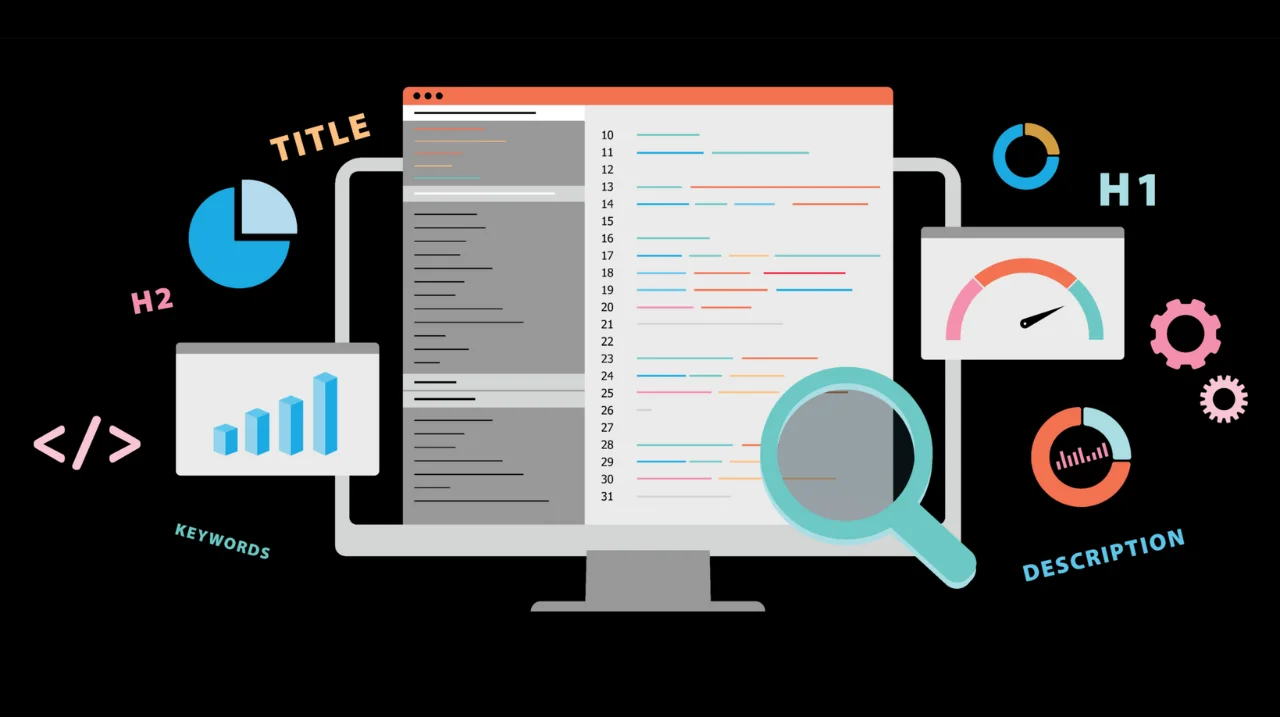When it comes to developing a search-optimized website, there are certain practices that you should avoid. These practices can not only harm your website’s search engine rankings but also negatively affect user experience. In this blog post, we will discuss what to avoid when developing a search-optimized website.
Keyword Stuffing:
One of the most common practices that you should avoid is keyword stuffing. Keyword stuffing is the practice of using the same keyword or phrase repeatedly in your website’s content in an attempt to manipulate search engine rankings. This not only makes your content unreadable but also results in a penalty from search engines. Keyword Stuffing is an outdated practice and should be avoided. It would be better to focus on creating quality content and using keywords naturally.
Cloaking:
Another practice that you should avoid is cloaking. Cloaking is the practice of presenting different web pages to search engine spiders and users. This practice is used to manipulate search engine rankings but it can be detected by search engines and lead to a penalty. It is better to avoid cloaking and focus on creating quality content and using legitimate SEO techniques. It is also important to note that cloaking is considered a black hat SEO technique and should be avoided.
Linking to Low-Quality Websites:
Another practice that you should avoid is linking to low-quality websites. Linking to low-quality websites can have a negative effect on your website’s search engine rankings. Quality over quantity should always be the focus when it comes to link building. Make sure that you are only linking to relevant and high-quality websites.
Using Spammy Popups:
Finally, another practice to avoid is using spammy popups. Pop-ups are a great way to capture a user’s attention and promote your website but using too many pop-ups or using ones that are intrusive can negatively impact search engine rankings. Make sure that you use pop-ups sparingly and avoid using intrusive or spammy ones.
Invisible Text:
You should also avoid using invisible text on your website. Invisible text is when you have text that is hidden from the user but visible to search engines. This practice can get you penalized by search engines and should be avoided at all costs. Invisible Text is sometimes used as a tactic to manipulate search engine rankings but is considered unethical and should be avoided. You should focus on creating quality content and using legitimate SEO tactics. You should also avoid using any tactics that could be considered unethical.
Duplicate Content:
Another practice to avoid is publishing duplicate content. Duplicate content refers to content that appears on multiple pages of your website or on other websites. Search engines penalize websites that have duplicate content, and it can also negatively impact user experience.
Poor Website Navigation:
Your website’s navigation is one of the most critical elements in providing a good user experience. If your website has poor navigation, users will have a difficult time finding what they’re looking for, resulting in a high bounce rate. This can also negatively impact search engine rankings as search engines favor websites with good user engagement.
Ignoring Mobile Optimization:
With more and more people using mobile devices to browse the internet, it is crucial to ensure that your website is optimized for mobile devices. Ignoring mobile optimization not only negatively affects user experience but can also result in a penalty from search engines. It is important to make sure that your website is optimized for mobile devices and provides a good user experience.
Slow Page Load Speed:
The page load speed of your website is an important factor in search engine rankings and user experience. If your website has a slow page load speed, users are more likely to leave your website and search engines may penalize your website. You should make sure that your website is optimized for speed and runs quickly.
Neglecting Meta Tags:
Meta tags are important elements of on-page SEO and should not be neglected. The title tag and meta description provide a brief summary of your website’s content, and if they are not optimized, they can negatively affect click-through rates and search engine rankings. It is important to make sure that your meta tags are optimized for search engine rankings.
Overusing Images and Videos:
While images and videos can enhance your website’s content, overusing them can negatively affect your website’s search engine rankings and page load speed. It’s important to use images and videos sparingly and ensure that they are optimized for the web. You should also compress any images or videos that you include on your website to ensure a faster page load speed.
Link Building with Poor Quality Sites:
Link building is an important part of SEO, but it is important to be selective about the sites you link to. Linking to low-quality websites can negatively impact your website’s search engine rankings. You should focus on building quality links to reputable websites in order to improve your website’s rankings.
Not Including Internal and External Links:
Internal and external links are important elements of on-page SEO, as they help search engines understand the content of your website and provide additional value to users. Neglecting to include internal and external links can result in a penalty from search engines and a poor user experience.
Ignoring Accessibility:
It’s important to ensure that your website is accessible to all users, including those with disabilities. If your website isn’t properly optimized for accessibility, it can negatively affect user experience and even result in legal action.
Conclusion:
In conclusion, developing a search-optimized website requires avoiding certain practices that can harm your website’s search engine rankings and negatively impact user experience. These practices include keyword stuffing, publishing duplicate content, poor website navigation, ignoring mobile optimization, slow page load speed, neglecting meta tags, overusing images and videos, and not including internal and external links.
